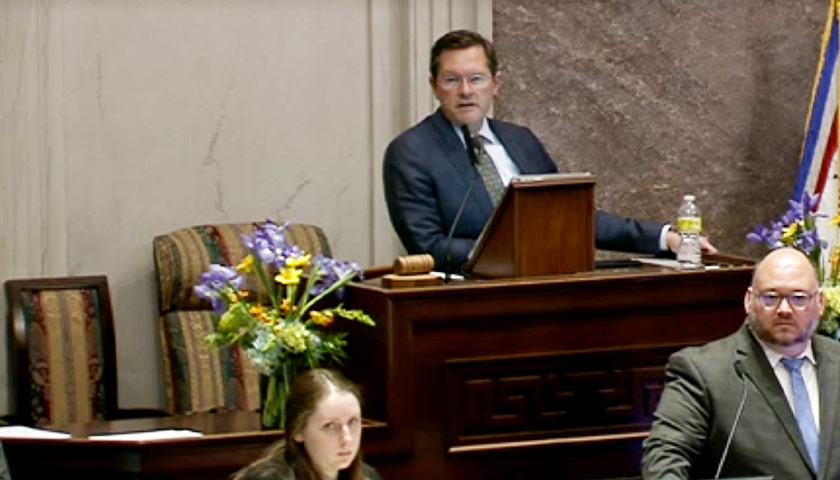The Tennessee General Assembly approved legislation establishing a three-year residency requirement for federal candidates in primaries on Monday.
The legislation has now passed both the House and the Senate, with the House approving the Senate version on Monday by a vote of 70 to 18. One House member voted present, not voting.
The Senate previously voted 31-1 to approve the legislation, meaning that 101 members of the Tennessee General Assembly voted to approve the bill, with only 19 voting against it. That’s 84.16 percent total in favor, with 15.83 percent against.
It is now up to the Speakers of both chambers to affix their signatures to the bill, which is largely a formality, and then it will be sent to Governor Bill Lee for his approval.
The Tennessee Star earlier reported that the state House had previously passed the three-year residency legislation; however, that legislation was in conflict with the Senate-passed version. That conflict has now been resolved.
The Senate non-concurred with the House version on March 21 and sent it back to the House. On Monday, the House took up the Senate’s non-concurrence during their floor session.
When the Senate-passed SB2616 came up during the message calendar portion of the floor meeting, State Representative Dave Wright (R-Knoxville) motioned to reconsider the House previous actions on the legislation. He then moved for final approval of the Senate-passed version.
The amendment of the November 9 effective date was then removed from the bill. The legislation was then voted on by the full House and overwhelmingly passed 70-18.
Upon Governor Lee’s signature, which is considered likely, the three-year requirement for candidates in federal primaries will take immediate effect. He has not made a public statement on the legislation.
If the legislation becomes enacted into law, TN-5’s Republican primary field will have a drastic shakeup. Carpetbaggers Morgan Ortagus and David Vitalli will be immediately ineligible to run, except as third-party candidates. California native Robby Starbuck would likely be ineligible as well. Starbuck had previously refused to address questions made by The Star about his residency claims.
The Star previously reported Starbuck’s threatened legal action if his eligibility for the TN-5 Republican primary is challenged.
“I‘ve retained a world-class lawyer who has won multiple Supreme Court cases and I’ll deploy them accordingly if anyone’s desperate enough to contest my eligibility,” he said.
“If they do contest my eligibility, I hope they have deep pockets because they’ll end up paying my legal fees after I win. Tennessee was my primary residence in time to meet any new standard that would be set by the law being considered by our legislature if it passes.”
It is unclear who he means by “they.”
Starbuck later named the attorneys that he plans to use, saying to The Star, “My lawyers are Harmeet Dhillon and Michael Columbo.”
It is unclear if Ortagus or Vitalli will file lawsuits upon the enactment of the legislation.
How the legislation will be enforced is likely the jurisdiction of the county election commission in the locality that the candidate running for office claims to be a resident of.
The Tennessee Secretary of State’s office previously said that residency under current law is the province of the county election commission where the candidate is claiming residency. The county election commission is empowered to determine the issue of residency in an open meeting after hearing the evidence and if a complaint is made, they will review them.
Given that is how residency is determined under current law, the county election commission where a candidate resides will likely have the jurisdiction to determine a candidate’s residency start date under the proposed three-year requirement legislation.
The General Assembly-passed legislation makes no reference to the contrary.
– – –
Aaron Gulbransen is a reporter at The Tennessee Star and The Star News Network. Email tips to [email protected]. Follow Aaron on GETTR,Twitter, and Parler.








